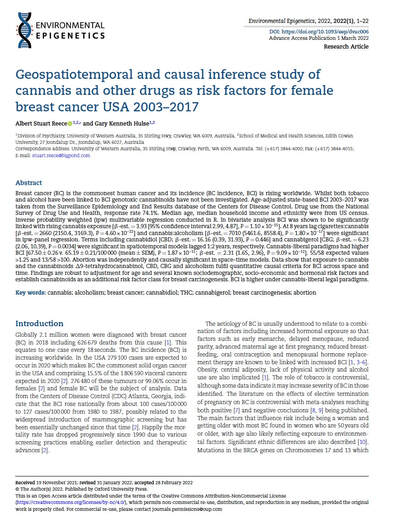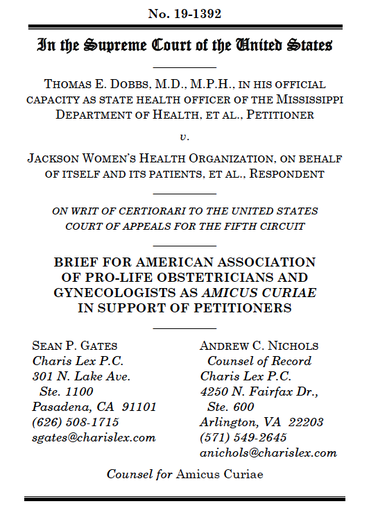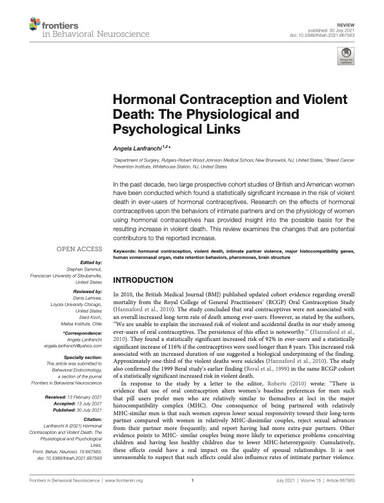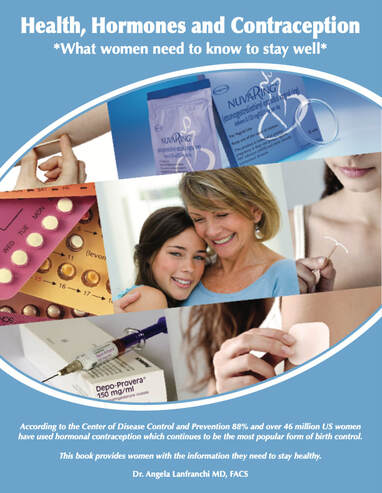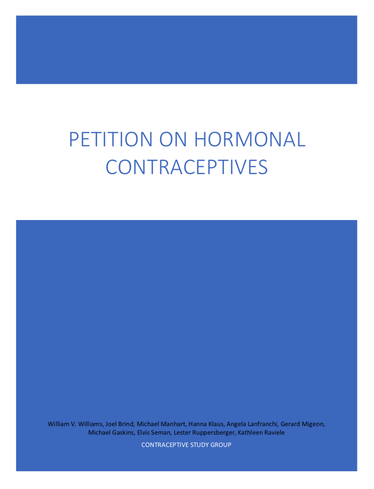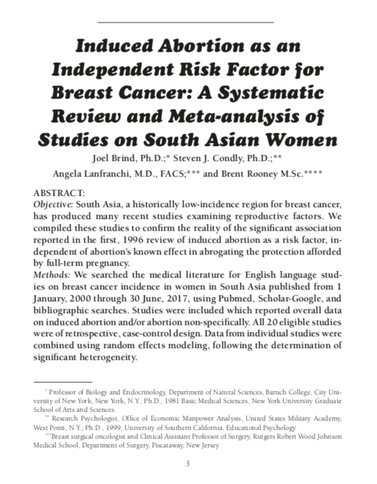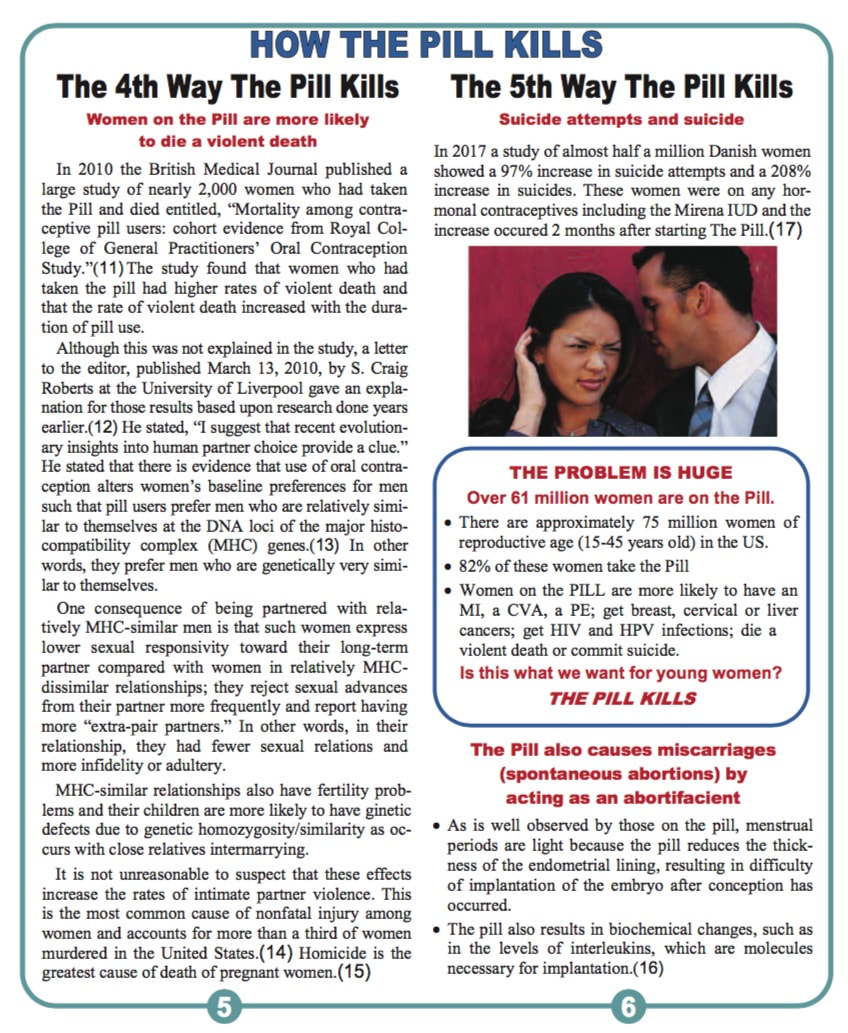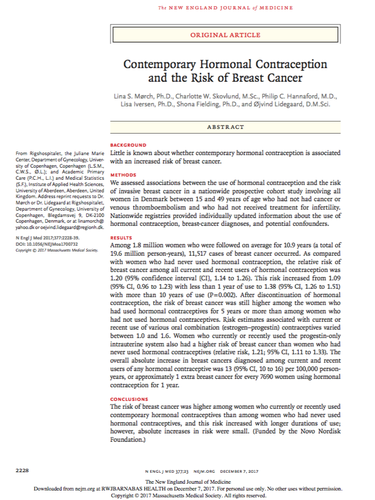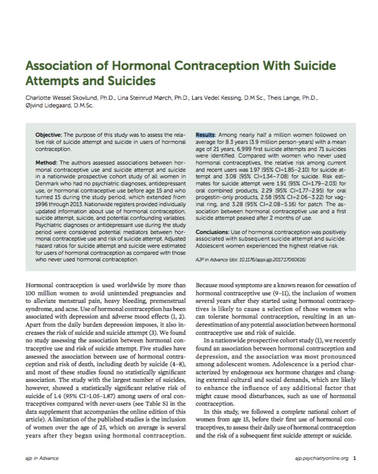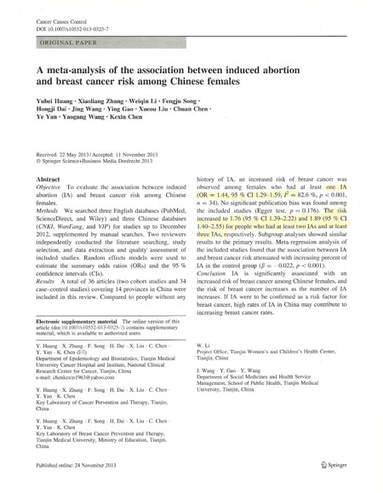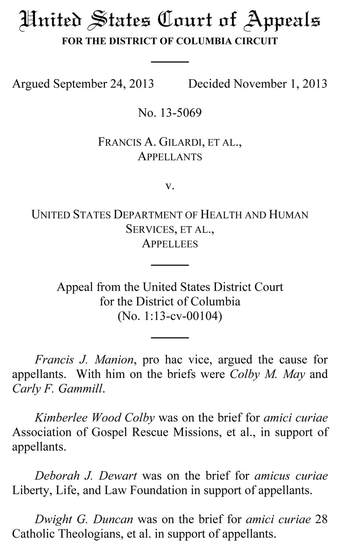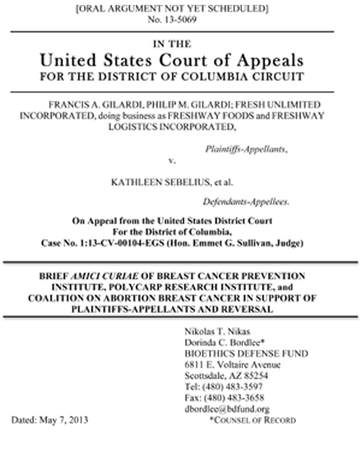NEWS UPDATES | FACT SHEETS | BROCHURES | BOOKS | PUBLICATIONS | VIDEOS | FILMS | REPORTS
Click links above to view any of the BCPI resource pages
Click links above to view any of the BCPI resource pages
BCPI - News Updates
|
October 1, 2022
A landmark paper which can be found in its entirety without cost from PubMed at: https://www.ncbi.nlm.nih.gov/pmc/articles/PMC8978645/pdf/dvac006.pdf was recently published which found that cannabis metabolites and induced abortion greatly increased breast cancer risk. Summary of Article: In February 2022, medical researchers from the University of Western Australia, Drs. Reece and Hulse, published in the journal of Environmental Epigenetics a large study that used U.S. data from the Center for Disease Control for cancer statistics (SEER data) and from the National Survey of Drug Use and Health for cannabis usage and other variables. The paper was entitled “Geosptiotemporal and causal inference study of cannabis and other drugs as risk factors for female breast cancer USA 2003-2017” and can be found on line without charge at PubMed. They described their findings as robust for establishing cannabis and cannabinoids as a significant risk for breast cancer after adjustment for the effects of other risk factors for breast cancer such as age, hormonal, sociodemographic and socioeconomic factors. Click to continue summary... March, 2021
Brief for American Association of Pro-Life Obstetricians and Gynecologists as Amicus Curiae. IN SUPPORT OF PETITIONERS "At the present time, SCOTUS is deliberating the merits of a law enacted in Mississippi that bars abortions after 15 weeks except for medical emergencies and severe fetal abnormalities. In the Dobbs v. Jackson case, yet to be ruled upon, BCPI helped an over 6,000 member strong physician association, the American Association of Pro-Life Obstetricians and Gynecologists (AAPLOG), to document in amicus curiae brief that abortion negatively impacts women’s health and future children. The brief argued that due to the consequences of abortion-related deaths, risk of later premature births, risk of breast cancer in the mother and the risk of depression, drug abuse and suicide post abortion the law should be upheld." July 31, 2021
Hormonal Contraception and Violent Death: The Physiological and Psychological Links On July 31, 2021, Frontiers in Behavioral Neuroscience published a review “Hormonal Contraception and Violent Death : The Physiological and Psychological Links” In the past decade, two large prospective cohort studies of British and American women have been conducted which found a statistically significant increase in the risk of violent death in ever-users of hormonal contraceptives. Research on the effects of hormonal contraceptives upon the behaviors of intimate partners and on the physiology of women using hormonal contraceptives has provided insight into the possible basis for the resulting increase in violent death. This review examines the changes that are potential contributors to the reported increase. |
|
November 2, 2020
Breast Cancer Prevention Institute has published a new 77 page book that is now available to order and see online. Health, Hormones and Contraception was written by Dr. Lanfranchi in response to the many questions she was asked by her patients over a 33 year career concerning hormonal contraceptives. Part 1 is devoted to the basics of the endocrine system as it relates to fertility and the menstrual cycle. If you don’t like biology you can skip to Part 2 which answers the myriad of common questions women have concerning hormonal contraceptives, their uses and effects. Part 3 contains the entire FDA Petition (already available on line) documenting adverse effects with the accompanying medical references as well as alternative methods of fertility control and resources to learn about them. There is also an article concerning the abortifacient effects of the Pill. This concise reference is suitable for teens and their parents and all women who have been prescribed female hormones for any reason. |
|
June 28, 2019
Citizen Petition from Contraceptive Study Group. The FDA accepted the petition on October 30, 2019. Hormonal contraceptives have been on the market for over 50 years and, while their formulations have changed, the basic mechanism of action has remained the same. During this time numerous studies have been performed documenting side effects, some of which appear over time, some within weeks or months, but all can have a serious impact on health. An effort was made to perform a series of comprehensive literature surveys to better understand immediate and long-term side effects of these agents. The results of this literature review have led to several recommendations. Click here to read/add your comments online. Petition on Hormonal Contraceptives (pdf) |
|
April 1, 2018
Induced Abortion as an Independent Risk Factor for Breast Cancer: A Systematic Review and Meta-analysis of Studies on South Asian Women Issues In Law & Medicine published a new meta-analysis done by the Breast Cancer Prevention Institute 20 retrospective case-control studies from January 1, 2000 through June 30,2017 were analyzed. Overall, the 20 studies resulted in a 151% increase in breast cancer with induced abortion. These results were statistically significant. There was a 291% increase in the 5 studies that differentiated induced from spontaneous abortions as well as a dose response i.e. there was greater risk with more abortions. You can see a copy of this new study under publications Click here to read more... |
|
March 16, 2018
BCPI has updated its brochure The Pill Kills With the recent publication of a Danish study that showed women on the Pill more than doubled their risk of suicide, we have added that information. Instead of 4 ways there are now 5 ways the Pill Kills Click here to read more... |
|
December 7, 2017
Contemporary Hormonal Contraception and the Risk of Breast Cancer A group of scientists from Denmark followed 1.8 million women for an average 10.9 years who to any hormonal contraception. With more than 10 years use, they found a statistically significant 38% increase in risk of breast cancer. It is not uncommon for women in the United States to start taking hormonal contraception when they are teenagers and waiting until they are in their 30s to stop in order to get pregnant. Click here to read more... |
|
November 17, 2017
Association of Hormonal Contraception With Suicide Attempts and Suicides A group of scientists from Denmark followed a group of young women who turned 15 from 1996-2013 who took hormonal contraceptives in a nationwide prospective study. Among "nearly half a million women followed on average 8.3 years" there were 6,999 first suicide attempts and 71 suicides. Compared to women who never used hormonal contraceptives there was a 97% statistically significant increase in suicide attempts and an over 200% statistically significant risk of suicide. (from American Journal Psychiatry) Click here to read more... |
|
November 24, 2013
A meta-analysis of the association between induced abortion and breast cancer risk among Chinese females An important new meta-analysis on the association between induced abortion and breast cancer was published in Cancer Causes Control on November 24, 2013, titled: A meta-analysis of the association between induced abortion and breast cancer risk among Chinese females, Yubei Huang, et. al. Click here to read more... |
|
November 1, 2013
The Decision: As stated by Judge Brown in the majority decision: "Equally unconvincing is the government’s assertion that the mandate averts “negative health consequences for both the woman and the developing fetus.” From the outset, we note the science is debatable and may actually undermine the government’s cause. For the potential mother, as one amicus notes, the World Health Organization classifies certain oral contraceptives as carcinogens, marked by an increased risk for breast, cervical, and liver cancers. Br. of the Breast Cancer Prevention Institute, at 8–9. On the other hand, the contraceptives at issue have been approved by the Food and Drug Administration, supported by research touting their benefits. See Op. of Edwards, J., at 30. This tug-of-war gives us pause because the government has neither acknowledged nor resolved these contradictory claims." |
|
May 7, 2013
Amicus Brief BCPI, with the Coalition on Abortion Breast Cancer and Polycarp Research Institute, wrote an Amicus Brief to support Francis Gilardi, et. al, vs. Kathleen Sebelius, et. al. challenging the Affordable Care Act’s mandate requiring employers to provide free coverage for contraceptives, abortion-inducing drugs and sterilizations, regardless of their rights to religious freedom. The Gilardi brothers are Roman Catholics. The Brief describes the carcinogenic nature of oral contraceptives and other potentially life threatening risks, such as strokes, heart attacks, and blood clots. LINK: Amicus Brief.pdf
|
Mailing List: Click Here
If you wish to be added to our mailing list, please click link above.
We have two mailings per year of our BCPI Report.
When you add your name, we will send you a copy of our most recent mailing.
If you wish to be added to our mailing list, please click link above.
We have two mailings per year of our BCPI Report.
When you add your name, we will send you a copy of our most recent mailing.
|
All images and content are Copyright © 2002-2017
Breast Cancer Prevention Institute. No text, photos, or videos may be reproduced without the expressed prior written consent of Breast Cancer Prevention Institute. Email: info@bcpinstitute.org |
|
Webmaster - deanbieker@live.com
|

